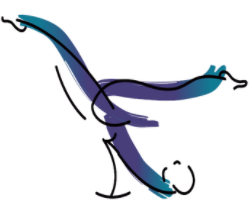How Pilates Can Improve Your Postnatal Experience
Pilates is a low-impact form of exercise that focuses on strengthening both mind and body. Joseph Pilates originally developed it in the early 20th century, but it has gained popularity in recent years to improve one’s overall fitness and well-being.
The postnatal period is one area where Pilates can be particularly beneficial. After giving birth, a woman’s body undergoes significant changes and must often cope with the physical demands of caring for a new baby. In this short-form blog, we’ll explore how Pilates can improve your postnatal experience.
Strengthening Your Core
One of the main benefits of Pilates is its focus on strengthening the core muscles. During pregnancy and childbirth, these muscles can become weakened and stretched, leading to issues such as back pain and poor posture. Pilates targets the deep abdominal and pelvic floor muscles, helping to rebuild their strength and stability.
Strengthening one’s core is especially important for new mothers who may experience diastasis recti, a condition where the abdominal muscles separate during pregnancy. Pilates exercises can help to close this gap and improve core strength, leading to better posture and reduced back pain.
Improving Pelvic Floor Function
Improving pelvic floor function is another important aspect of postnatal recovery. The pelvic floor muscles are responsible for supporting the bladder, uterus, and bowel, and they can weaken during pregnancy and especially during childbirth.
Pilates exercises can help to strengthen these muscles, leading to better bladder and bowel control and reduce the risk of pelvic organ prolapse. Improving one’s pelvic floor function is particularly important for new mothers, as carrying and caring for a baby can put added strain on the pelvic floor.
Managing Stress
Caring for a newborn can be stressful and demanding physically, emotionally, and mentally. Pilates incorporates breathing techniques and mindfulness practices, which can help to reduce stress levels and promote relaxation. Proper stress management can also have a positive impact on the overall well-being of the whole family.
Proper and effective postnatal care is important for new moms, but these care needs can stretch beyond medical care and nourishment. Adding a Pilates practice into the care routines can help rebuild and restore each area of a new mom’s life.
Restoring Posture
Pregnancy and giving birth can cause changes in posture, such as rounding of the shoulders and an increased curve in the lower back. These changes can contribute to back pain and discomfort. Pilates focuses on correcting these imbalances through targeted exercises, helping to restore proper posture and alleviate associated pains.
Boosting Energy Levels
New mothers often experience fatigue due to the demands of caring for a newborn. Pilates can help to improve energy levels by increasing blood flow and oxygen circulation throughout the body. The controlled movements and focus on breathing can also provide a burst of energy and mental clarity, helping new mothers feel rejuvenated and ready to take on the day.
Pilates can drastically improve a postnatal experience, but consulting your overseeing care team to understand when and how to incorporate Pilates into your day is essential. Adhering to the appropriate healing windows is a vital part of recovery, and Pilates is here when you’re ready!


